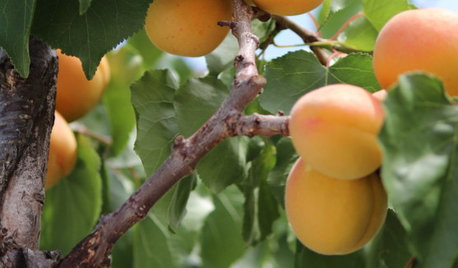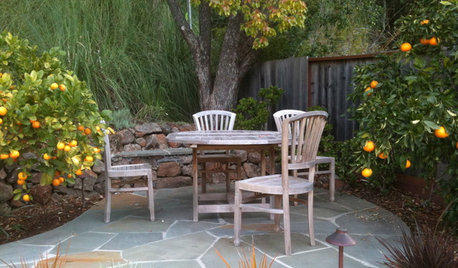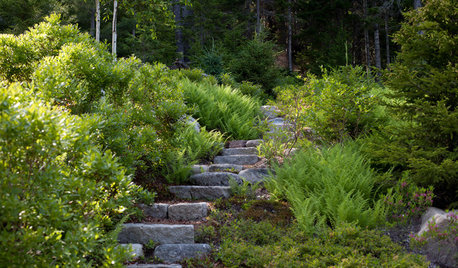I bought a home with 20 fruit trees. I need some advice!
christybmom9802
11 years ago
Related Stories

LIGHTINGSo You Bought a Cave: 7 Ways to Open Your Home to Light
Make the most of the natural light your house does have — and learn to appreciate some shadows, too
Full Story
EDIBLE GARDENSHow to Grow 10 Favorite Fruit Trees at Home
Plant a mini orchard in fall, winter or early spring to enjoy fresh-off-the-tree fruit the following year
Full Story
FARM YOUR YARDIf You Have Room for Only One Fruit Tree ...
Juice up a small garden with one of these easier-care or worth-the-effort fruit trees for a mild climate
Full Story
HEALTHY HOMEHow to Childproof Your Home: Expert Advice
Safety strategies, Part 1: Get the lowdown from the pros on which areas of the home need locks, lids, gates and more
Full Story
BATHROOM DESIGNDreaming of a Spa Tub at Home? Read This Pro Advice First
Before you float away on visions of jets and bubbles and the steamiest water around, consider these very real spa tub issues
Full Story
FUN HOUZZEverything I Need to Know About Decorating I Learned from Downton Abbey
Mind your manors with these 10 decorating tips from the PBS series, returning on January 5
Full Story
GARDENING AND LANDSCAPINGCrazy for Fruit Trees
Whether a single citrus or a mini apple orchard, even the smallest landscape space can bear deliriously delicious fruit
Full Story
GARDENING GUIDESGreat Design Plant: Grow Blueberries for Their Fruit and More
Eastern gardeners should consider growing blueberry plants for their delicious fruits, bee-friendly spring blooms and brilliant fall foliage
Full Story
DECORATING GUIDES10 Design Tips Learned From the Worst Advice Ever
If these Houzzers’ tales don’t bolster the courage of your design convictions, nothing will
Full Story
MOST POPULARHow to Get Rid of Those Pesky Summer Fruit Flies
Learn what fruit flies are, how to prevent them and how to get rid of them in your home
Full StoryMore Discussions






ltilton
Omni
Related Professionals
Signal Hill Landscape Architects & Landscape Designers · Tempe Landscape Contractors · Berkeley Heights Landscape Contractors · Chattanooga Landscape Contractors · Cliffside Park Landscape Contractors · Las Vegas Landscape Contractors · Lyndhurst Landscape Contractors · Mission Landscape Contractors · North Canton Landscape Contractors · North Lauderdale Landscape Contractors · North Richland Hills Landscape Contractors · Sugar Hill Landscape Contractors · West Coon Rapids Landscape Contractors · New Carrollton Landscape Contractors · Selma Landscape Contractorsabz5b
milehighgirl
daemon2525
mrsg47
bruce2288
capoman
blazeaglory
canadianplant
bart1
milehighgirl